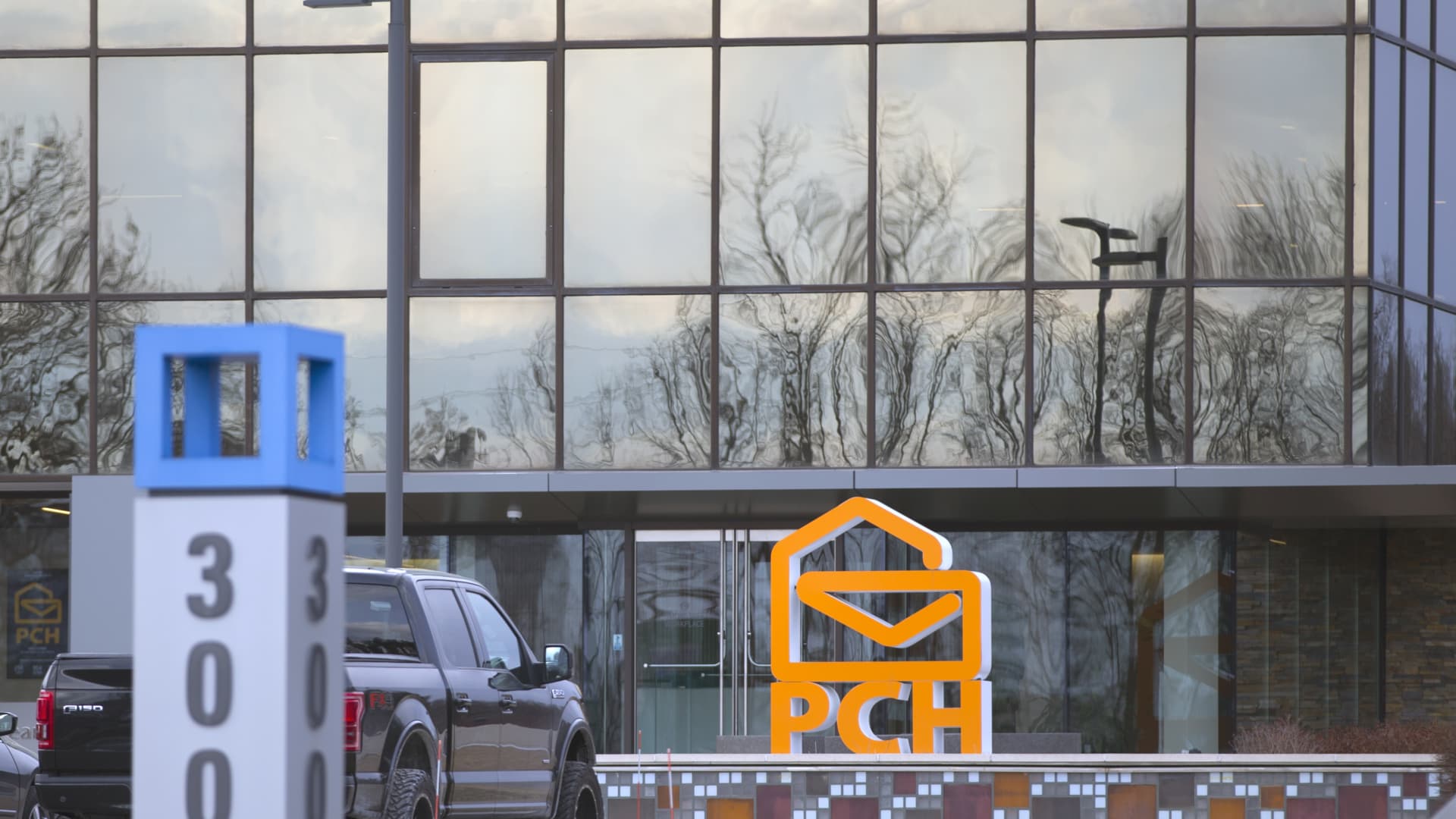Products You May Like
Publishers Clearing House will refund $18.5 million to customers and make changes to its online business practices as part of a settlement reached with the Federal Trade Commission, the agency said Monday.
The FTC had sued the company — which runs sweepstakes contests and is well-known for surprising people on their doorstep with oversized checks — for allegedly using so-called dark patterns and other deceptive consumer practices like surprise fees.
More from Personal Finance:
Americans think they will need nearly $1.3 million to retire comfortably
How many credit cards should you have? The answer isn’t zero, say experts
Why it’s important to spend on joy, according to a financial advisor
It’s unclear how many customers will receive refunds and how soon that might occur.
PCH didn’t return a request for comment on the settlement or allegations by press time.
How ‘dark patterns’ can trap consumers
The FTC also sued Amazon last week for allegedly using “dark patterns” to trap people into recurring subscriptions for its Prime service without consent.
Dark patterns are a “manipulative” and unlawful design trick, examples of which include pre-checked boxes, hard-to-find-and-read disclosures and confusing cancellation policies, the FTC said. They pose “heightened risks” for consumers online, it added.
“This is our second dark pattern lawsuit over the last week,” Samuel Levine, director of the FTC’s bureau of consumer protection, said of the PCH lawsuit in a written statement. “Firms that continue to deploy deceptive design techniques are on notice.”
In the PCH case, the FTC claimed the company used “manipulative phrasing and website design” to convince consumers they needed to buy a product of some kind to enter the company’s sweepstakes or increase their odds of winning.
When it included disclaimers or clarifying information, the text was in small, light font and overlooked by consumers, the FTC claimed.
In addition to sweepstakes, PCH also sells merchandise and magazines. The FTC alleged the company charged hidden fees that averaged more than 40% of the product costs, and misled customers with deceptive language in e-mail subject lines and statements in its privacy policy.
PCH agreed to settle charges, which claimed it had violated the FTC Act and CAN-SPAM Act. The company will pay $18.5 million to the FTC, which will refund impacted consumers. The company is also required to stop using deceptive language around sweepstakes and sales, and halt use of surprise fees, among other changes to its business practices.
More broadly, consumers may not realize they are being manipulated or misled by dark patterns since they are “covert or otherwise deceptive,” the FTC said. There are numerous examples, but some common ones consumers may confront online include phony customer endorsements (for example, the endorser may have been paid), fake low-stock messages (for example, there’s only one item left in stock) and a fake countdown clock (which pressures consumers to buy immediately, but resets after timing out).
